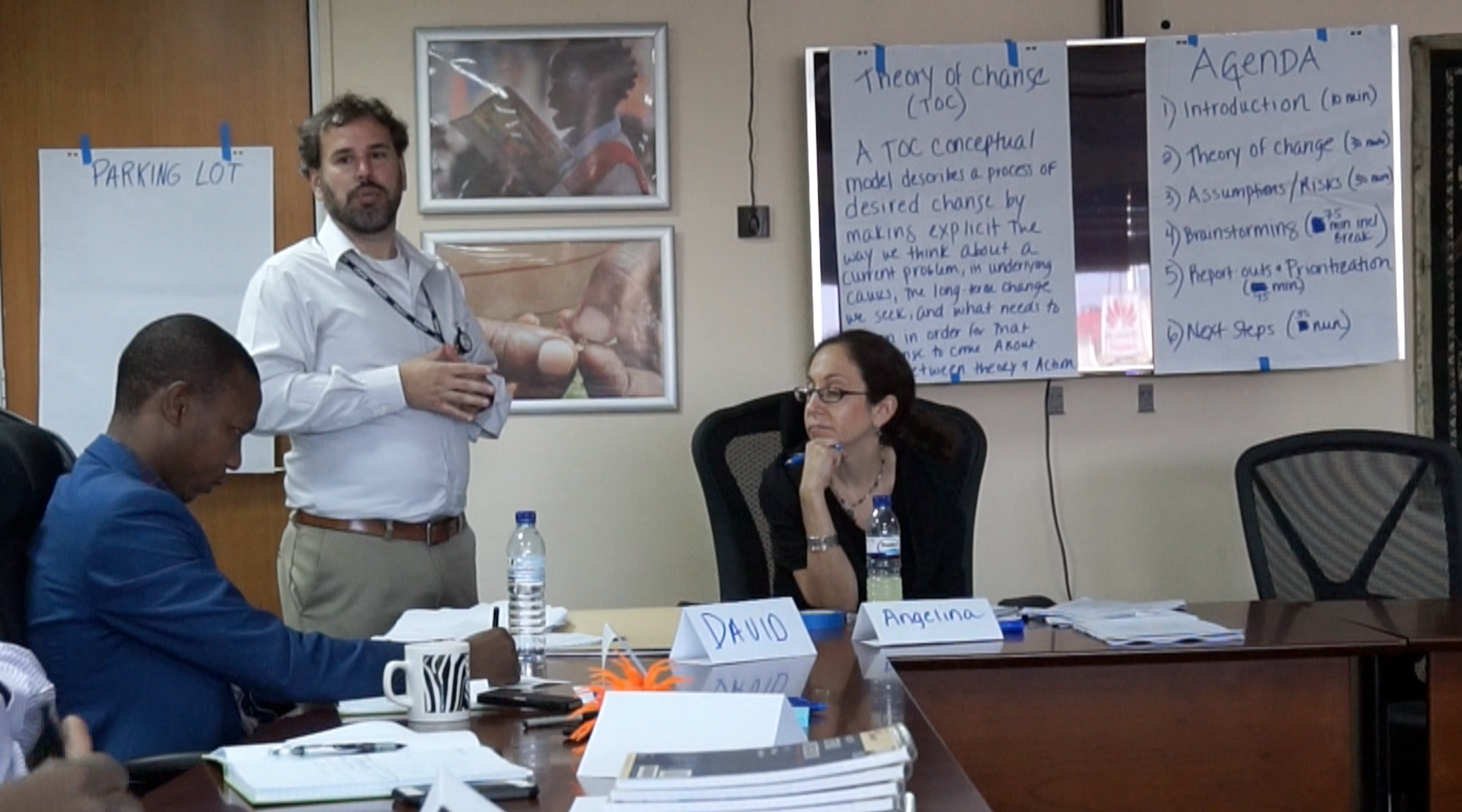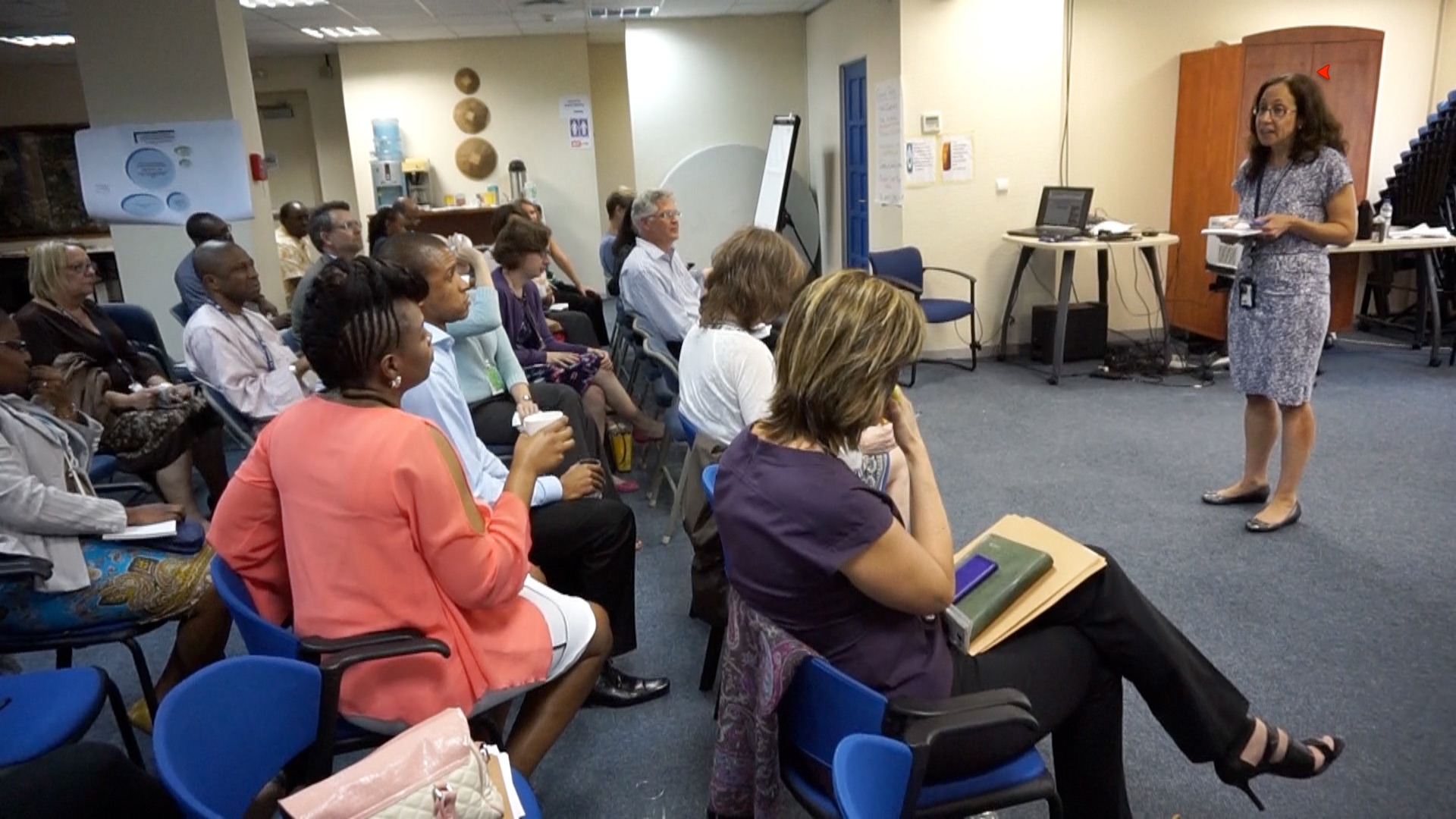Three Perspectives on USAID/Mozambique’s Mid-Course Strategy Stocktaking
USAID/Mozambique embarked on a journey to reflect and learn about progress during the first two and a half years of their country strategy. Following an intense planning and preparation period to collect and analyze data, the Mission conducted a two-week stocktaking workshop with Mission-wide participation. After the workshop, the Mission undertook an action planning process as the first step in an adaptive management process. Presented here are three different perspectives and key takeaways from the planning, workshop and action planning post-workshop. (Click on a name below to jump down to that person's takeaways.)
 |  |  |
Gastao Mendes - USAID/Mozambique Project Development Officer | David Ratliff - USAID Foreign Service Officer, Bureau of Policy, Planning and Learning | Angelina McIntire - Senior Knowledge Management and Learning Advisor, LEARN Contract |
Gastao Mendes - USAID/Mozambique Project Development Officer
As the Mission started to discuss the idea of doing a strategy mid-term review or stocktaking, we agreed that it was critical to plan well ahead of time and emphasize that strong participation across the Mission was really important. The Mission Program Office developed a timeline with specific check-in opportunities that was as realistic as possible and flexible enough to be adjusted to reflect changes and constraints. Since the Program Office is the lead for development and review of the Mission strategy, we wanted to ensure collaboration and involved the technical teams on all the steps and processes and made sure everyone understood the time-frame and, most importantly, the expectations. Managing expectations was one of the biggest challenges of the process. We had several planning meetings and presentations to explain and/or discuss the process and clarify roles and responsibilities. The fact that we were very transparent and consultative about the process helped reduce unrealistic expectations. It was an intense process, but very gratifying.
In terms of follow-up to the stocktaking workshop, we made an effort to make sure we did not lose momentum and immediately started working on a clear and concise action plan. This adaptive management plan includes short-term priorities and medium-term priorities. The Mission is trying to be focused and prioritize what really makes sense, and what is realistic, to adjust now for the next 2.5 years of the strategy. At the same time the Program Office is trying to be sensitive to all the work that everyone did during the process and the time that will be required to implement any new adaptive changes. Reaching the correct balance is critical as we move forward and identify actions for the current strategy and actions or considerations as we start developing the next strategy. In addition, keeping in mind the time dedicated by the technical teams up to now, the Program Office has taken the responsibility for drafting the initial action plan with collaboration from each of the teams involved.
David Ratliff - USAID Foreign Service Officer with the Bureau of Policy, Planning and Learning

As a facilitator of the two week stocktaking workshop, I came away with three main reflections:
Thematic approach. During the planning and preparation phase the Mission created four working groups to apply a thematic lens to the data collection and analysis--Engagement; Performance; Collaborating, Learning and Adapting; and Management. These four themes enabled the Mission to do a lot of the difficult work prior to the actual workshop so that staff didn’t get bogged down on indicators, individual relationships, or other micro-level details. Essentially, these groups allowed the workshop to focus on the big picture reflection, but with a lens that led to specific recommendations in those areas that were important to the Mission. I don’t know if these four themes would be appropriate for every Mission to copy in their stocktakings, but the thematic approach was extremely useful and valuable. I know that when I go back out to the field as Program Officer that I will definitely use some version of it.
Focus on management and enabling conditions. The emphasis on the management of the strategy was unique and we hadn’t seen that as a priority in any of the other Mission strategy stocktaking exercises conducted to date. The management structure and the way that each Mission is set up to achieve its development results is often as important as the technical work itself. Unfortunately, many Missions don’t look inward, and as a result don’t often collaborate as effectively as they could across technical sectors. Mission leadership also made the decision to emphasize workshop participation, but remain absent from the working discussions in order to stress the importance of openness and honesty. The impact of that decision was readily apparent. I can’t stress enough how important it is for the Program Office to work with Mission leadership to set the tone prior to any strategy or project review, as well as taking a reflective inward look at how the management structure and enabling conditions can be improved to achieve better results.
Response from technical offices. As a former technical officer I was always resistant to portfolio reviews and other strategic exercises because I rarely saw any value or adaptive change occur as a result. I assumed it would be the same in Mozambique. On the contrary, we heard from technical officers time and time again that the preparation workload was surprisingly low, the workshop itself extremely valuable and engaging, and enthusiasm towards seeing real change following the stocktaking. This was in large part to the time and effort the Program Office spent on the planning and preparation prior to the workshop, and the conscious effort to not overburden the technical offices. I would recommend that any Mission conducting a stocktaking follow this example.
Angelina McIntire - Senior Knowledge Management and Learning Advisor, LEARN Contract

As a member of the LEARN contract supporting the Bureau of Policy, Planning and Learning, I had the pleasure of working with Gastao and David, among many others, to design and facilitate the Mozambique stocktaking workshop. This was my second stocktaking effort with a mission and I believe we had an extremely productive and insightful two weeks.
I completely agree with the comments above and would like to highlight my key takeaways. First, it was invaluable to have the support of the Front Office throughout the stocktaking process. As Gastao says above, emphasizing the importance of this process and encouraging strong participation were critical success factors, and the Front Office reinforced that message and actively engaged and supported staff in several sessions. Walking the talk and leading by example truly speak volumes to mission staff and I would encourage other mission leadership to consider the importance of their presence and engagement in key mission activities.
Secondly, the Program Office put a tremendous amount of time into thoughtful, strategic planning and minimized the technical officers’ time in advance of the workshop. As a result, staff came in fresh without preconceived ideas and were ready to engage with the data and discussion at hand. This allowed for a very fruitful discussion that led to concrete prioritization and realistic action planning, and I believe staff came out of the workshop feeling that their voices had been heard and that specific actions would be taken. Huge kudos to the Mozambique Program Office for their fantastic work and I look forward to hearing the outcome!
Have you had experience doing a strategy review or would you like to learn more? Please use the comment box below to share your experience with others or ask others for specific information that could help you!



